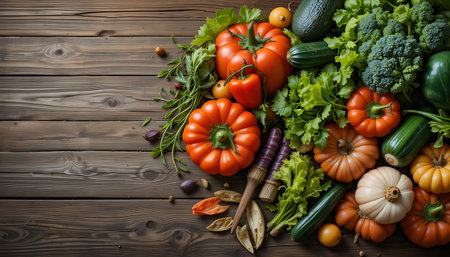Understanding Plant-Based Nutrition for Trail Walkers
Exploring the sprawling landscapes of the UK—be it the rugged coasts of Cornwall or the wilds of the Scottish Highlands—demands grit, resilience, and a solid nutritional foundation. For those embracing vegan or vegetarian diets, understanding how plant-based nutrition fuels endurance walking is crucial. Unlike traditional meat-based fare, vegan and vegetarian choices rely on pulses, grains, nuts, seeds, fruits, and veg to deliver both stamina and speedy recovery. These foods are packed with complex carbohydrates for slow-burning energy—a must when you’re clocking up miles on the South West Coast Path or navigating the fells in Lake District drizzle. Additionally, a well-balanced plant-based diet supplies essential micronutrients and antioxidants that help reduce inflammation and support muscle repair after long days on your feet. By prioritising a diverse range of wholefoods and planning meals to include key nutrients like iron, B12 (via fortified foods), omega-3s from flaxseed or walnuts, and plant-based proteins, walkers can keep their energy steady and their spirits high through every muddy stile and windswept ridge the British trails throw at them.
Planning UK Trail-Friendly Vegan and Vegetarian Meals
Embarking on a British trail as a vegan or vegetarian walker demands more than just enthusiasm—it’s about tactical meal planning, blending local flavour with pragmatic energy solutions to conquer both the unpredictable weather and rugged landscape. Here’s how you can create your own adventure-ready menu that keeps you fuelled from rolling dales to windswept moors.
Portable Plant-Based Power: The Essentials
Every seasoned UK walker knows that success on the trail hinges on your ability to pack light yet eat right. Opt for robust, nutrient-dense foods that travel well—think oatcakes, dried pulses, seeds, and nut butters. These staples are not only easy to stow in your rucksack but also offer sustained energy release, vital for those relentless climbs and sudden squalls.
Locally-Sourced Goodness
The UK countryside brims with fresh produce and artisanal fare. When plotting your route, research village shops, farm stands, or even PYO (pick-your-own) opportunities along the way. Incorporate regional vegetables like kale, carrots, and potatoes, or forage blackberries and wild garlic when in season. Supporting local growers not only enriches your meals but also roots your adventure in Britain’s living landscape.
Sample Meal & Snack Plan for UK Trails
| Meal/Snack | Examples | Benefits |
|---|---|---|
| Breakfast | Porridge oats with dried fruit & seeds | Sustained energy; easy to prepare with hot water |
| Mid-Morning Snack | Homemade flapjack (oat bar) or trail mix | Portable; calorie-dense; locally adaptable ingredients |
| Lunch | Wholemeal wrap with hummus & seasonal veg | No refrigeration needed; packs fibre & protein |
| Afternoon Snack | Crispy chickpeas or roasted nuts | Savoury, satisfying, and shelf-stable even in drizzle |
| Dinner (camp stove) | Lentil stew with root veg & herbs | Hearty; warms you up after a soggy day’s trek |
Navigating the Weather—And Your Appetite
The British climate is notorious for swift changes—sunshine one moment, sideways rain the next. Prepare meals that can be enjoyed hot or cold. Instant couscous or rice pouches paired with tinned beans mean you’re never caught out by a sudden downpour or campsite without facilities. For snacks, choose items that won’t go limp or soggy in damp conditions: think dried apple rings over fresh bananas, or sturdy oat bars over delicate pastries.
Packing Tips for Maximum Efficiency
- Select reusable silicone bags or beeswax wraps for eco-friendly food storage.
- Portion out snacks ahead of time to avoid rummaging at the bottom of your pack during a hailstorm.
- Cushion softer items (like fruit) between clothing layers to prevent bruising on rocky paths.
- If wild camping, bring a lightweight stove for quick one-pot wonders—the classic Trangia is a British favourite.
With these tactics in hand, you’ll be ready to face whatever the British trails—and skies—throw at you. The key: plan smartly, pack locally-inspired eats, and savour every step on your plant-powered journey across the UK’s legendary landscapes.

3. Must-Have Nutrients and Where to Find Them in Britain
When you’re trekking across the wild moors, ancient woodlands, or the rugged coastal paths of the UK, fuelling your body is as vital as lacing up your boots. For vegans and vegetarians, nailing essential nutrients isn’t just about energy—it’s about keeping your adventure spirit fired up from sunrise over the fells to that last mile before the pub. Here’s how to source those crucial elements on British soil.
Protein Power: Plant-Based Fuel for the Trail
Forget the stereotype of bland veggie snacks. British supermarkets are now bursting with protein-packed options: think lentil salads, falafel, and ready-to-eat tofu bites. For something local, scout farm shops for fresh beans, pulses, and even artisanal vegan pies—a hearty slice goes a long way on a misty morning. Don’t overlook nuts and seeds; they’re lightweight and perfect for quick fuel between stiles.
Iron: The Stamina Secret
Leg power depends on iron, especially when tackling steep ascents like Snowdonia or the Lake District ridges. Stock up on dark leafy greens (spinach, watercress), beans, and fortified cereals—these are standard fare at British grocers from Sainsbury’s to Co-op. For a real adventure twist, try wild foraging: nettles (gloves essential!) are abundant in spring and make an iron-rich brew or soup when cooked properly.
B12: The Elusive Essential
This one’s tricky—B12 rarely appears in plant foods. Thankfully, many British brands now fortify plant milks, breakfast cereals, and even yeast extracts (hello Marmite!) with B12. Check labels in major supermarkets or health food shops in trail towns like Ambleside or Keswick. For longer expeditions, pack B12 supplements—lightweight and life-saving for sustained energy.
On-the-Go Sourcing: Supermarkets, Farm Shops & Wild Finds
The UK countryside is dotted with hidden gems—farm shops selling local produce, delis offering vegan scotch eggs, and markets brimming with seasonal fruit. Plan ahead by researching which villages along your route have these stores; Ordnance Survey maps often mark them out. If you’re up for a true forager’s challenge, keep an eye out for wild blackberries in late summer or edible mushrooms if you know your fungi (always double-check with a guidebook!).
Final Word: Eat Adventurously
Whether you’re pounding along Hadrian’s Wall or navigating Dartmoor’s tors, meeting your nutritional needs as a vegan or vegetarian is absolutely doable—and part of the adventure itself. Britain’s diverse landscape isn’t just scenery; it’s a pantry waiting to be explored by those brave enough to look beyond the obvious. Stay curious, eat boldly, and let every meal fuel your next big push towards the horizon.
4. Navigating Pubs, Cafés, and Village Shops as a Vegan or Vegetarian
Embarking on the UK’s legendary walking trails is nothing short of an epic adventure—but for vegans and vegetarians, the true test often begins when hunger strikes in the heart of a remote village. Rural Britain, with its charming pubs, cosy cafés, and old-school village shops, can seem like culinary minefields for plant-based walkers. But with a bold spirit and a dash of know-how, you’ll uncover nourishing gems hidden among steak pies and bacon butties.
Decoding Menus Like a Nutrition Sleuth
Menus in rural UK eateries are often steeped in tradition, so it pays to become fluent in British food lingo. Be on the lookout for classic vegetarian standbys such as jacket potatoes (often vegan if you skip butter), vegetable soups (ask about chicken stock!), and ploughman’s platters (hold the cheese for vegan). Don’t be shy—pub chefs are increasingly accommodating and may happily “veganise” dishes by omitting eggs or dairy. Here’s a quick cheat sheet for typical menu items:
| Menu Item | Vegetarian? | Vegan? | Adventure Tip |
|---|---|---|---|
| Chips (fries) | Usually | Sometimes* | Ask if cooked in vegetable oil |
| Mushroom Pie | Often | No | Check pastry ingredients |
| Baked Beans on Toast | Yes | Yes* | Ensure no butter used on toast |
| Lentil Soup | Usually | Sometimes* | Ask about dairy/stock base |
* Always check for hidden animal products!
The Art of Asking the Right Questions
Your best weapon is curiosity—ask staff direct questions: “Is this suitable for vegans?” or “What do you recommend that’s vegetarian?” Most hosts are keen to help if you’re friendly and clear about your needs. If all else fails, go custom: request extra vegetables, swap meat for beans, or ask for side salads piled high. A little banter goes a long way in rural Britain!
Finding Plant-Based Gems Off the Beaten Path
The thrill of discovery extends beyond landscapes—many villages now boast surprising vegan-friendly options thanks to the rising trend of plant-based eating across the UK. Look out for local farm shops selling fresh fruit, nuts, and artisanal breads. Independent cafés may offer oat milk lattes or homemade veggie pasties. Some trail towns even have dedicated vegan menus! Use apps like HappyCow to scout ahead—or simply follow your nose; where there’s a bustling crowd, there’s usually good food.
Packing Your Own Trail Treats: The Ultimate Backup Plan
If you’re pushing deep into uncharted territory, carry emergency rations such as flapjacks, nut bars, dried fruit, or instant porridge pots (just add hot water from any pub kettle). This ensures you never go hungry while seeking out those elusive plant-powered feasts—and keeps your energy primed for the next big climb.
5. Sample Plant-Based Trail Meal Plans and Snack Ideas
If you’re heading out on a classic British ramble or embarking on a multi-day trek across rugged moorland, fuelling up with hearty, plant-based grub is absolutely doable—no need to sacrifice flavour or tradition. Here’s how you can keep your energy up with vegan and vegetarian bites that tip the cap to UK classics while giving them an adventurous twist.
Day Hike Essentials: Quick, Satisfying & Packable
Breakfast On-the-Go
Start strong with overnight oats jazzed up with Scottish berries, chia seeds, and a dollop of almond butter. If you fancy savoury, try prepping a couple of wholemeal wraps stuffed with smashed avocado, cherry tomatoes, and spinach—a nod to the good old sarnie but wholly plant-based.
Lunchtime Refuelling
Nothing beats a robust ploughman’s lunch for the trail: swap cheddar for tangy vegan cheese, add pickled onions, apple slices, crusty bread and hummus. For something warm, pack a flask of homemade veggie stew—think lentils, root veg and pearl barley simmered in rich stock—easy to prep ahead and pure comfort in the wild.
Savvy Snacks
Keep your pockets stocked with oat flapjacks made without honey (use golden syrup or agave), mixed nuts roasted with smoked paprika, and dried fruit like apricots or dates. If you crave something quintessentially British, vegan-friendly Bakewell tart bars travel brilliantly.
Multi-Day Trekking: Hearty Meals for Sustained Adventure
Dinner at Camp
After hours battling wind on the fells or tramping through ancient woodlands, tuck into one-pot wonders. Try a chickpea curry cooked over your stove with tinned tomatoes, garlic, and spinach—serve with quick-cook rice or flatbreads. For a taste of home, go for vegan shepherd’s pie using lentils, mushrooms and mashed potato flakes (they rehydrate fast!).
Breakfasts to Kickstart Your Morning
Porridge reigns supreme: pimp it up with sultanas, flaxseeds and a splash of oat milk. Or prep savoury breakfast pots by combining couscous with sundried tomatoes and pine nuts—just add hot water come morning.
Snack Hacks for Long Days
Energy balls made from oats, peanut butter and cacao nibs fit neatly in your rucksack. For something salty after all that sweating: roasted broad beans or seaweed crisps are lightweight yet satisfying. And don’t forget trusty tea bags—because nothing says “British trail break” quite like a cuppa amidst the hills!
With these meal plans and snack ideas rooted in UK tradition but twisted for plant-based adventure, you’ll be ready to tackle any path—from Cornish coastlines to the wilds of the Highlands—with both gusto and green credentials.
6. Dealing with Challenges and Staying Energised On the Go
Real-Life Survival Stories from the UK Trails
If you’ve ever found yourself ankle-deep in a Lake District bog, with sideways rain pelting your vegan flapjack, you’ll know that UK trails are not for the faint-hearted—especially when you’re living on plants. The weather can turn faster than a rambler’s compass needle, and energy slumps lurk behind every stile and kissing gate. But British vegans and vegetarians are nothing if not resilient. Let’s dive into some hard-earned lessons from those who have braved remote moors and windswept cliffs armed only with oat milk and stubborn determination.
Tackling Emergencies: When the Unexpected Strikes
No matter how meticulously you plan, the British countryside has a knack for throwing curveballs. Picture this: you’re halfway along the Pennine Way, miles from the nearest chippy or farm shop, when a sudden downpour soaks your pack—and your morale. One seasoned plant-based walker I met in the Yorkshire Dales recounted surviving on a makeshift meal of dried fruit, oatcakes, and peanut butter after her stove failed in a storm. Her tip? Always stash high-calorie snacks in waterproof bags at the top of your rucksack. Energy bars, nuts, and even vegan jerky can be lifesavers when hot food is off the menu.
Outsmarting Infamous British Rain
The rain isn’t just a minor inconvenience—it’s a legend in its own right here. Keeping your food dry is as crucial as keeping yourself dry. Use heavy-duty ziplock bags or invest in an ultralight dry bag to protect both prepared meals and emergency supplies. Many walkers swear by bringing along sturdy thermos flasks filled with hearty lentil soup or chickpea stew; they provide warmth and sustenance even when shelter is nowhere to be found. Don’t forget to hydrate—even grey drizzle can dehydrate you over long distances.
Battling Energy Slumps on Remote Footpaths
Plant-based nutrition requires vigilance to avoid flagging energy levels during long hauls across isolated fells or coastal paths. One vegan hiker shared his secret weapon: homemade trail mix packed with seeds, goji berries, dark chocolate chips, and salted pumpkin seeds for sodium replenishment after sweaty climbs. Packing small but mighty portions means you can refuel frequently without weighing yourself down. And remember, savoury snacks like roasted chickpeas or edamame beans break up the monotony of sweet treats.
The Mental Grit of Plant-Based Walking
Perhaps the greatest challenge is psychological—knowing that you’re fuelling epic adventures while sticking to your ethical guns. Every time you conquer a windswept ridge or navigate a muddy detour fuelled by cruelty-free eats, you’re proving something to yourself and setting an example for others on the trail. So next time the going gets tough, channel that indomitable British spirit: grit your teeth, reach for another handful of nuts, and stride onwards through mist and mire—the plant-based way.


